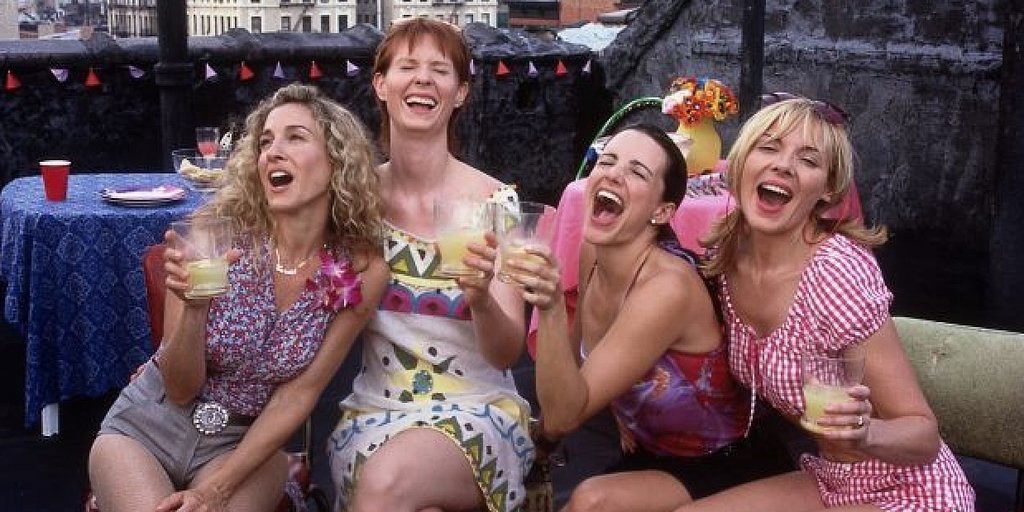I Guess the Economy Has Ruined “Going Out” Now
Is there anything the economy hasn’t ruined?

This week, The New York Times Magazine asks why we don’t want to go out anymore.
Is Staying In the New Going Out?
Just so we’re clear—I don’t mean “going out” in the context of “that thing you did in middle school where you sat next to someone at lunch and held hands under the table.”
I mean literally going outside. To bars! To art openings! To events!
Of all the customs that seem dated on shows like “Sex and the City” and “Entourage,” one of the most glaring is how often the characters went out — to premieres, cocktail parties, restaurant openings (are those even still a thing?), art openings, clubs … events. Multiple events in one evening! These tableaux have been replaced by Abbi and Ilana of “Broad City” getting trapped on the Internet all night and the stylishly domesticated Dev and Rachel on “Master of None” barely leaving their apartment.
I’m not sure that comparing our lives to “Sex and the City” and “Entourage” is the best course of action here. (Also, the characters in “Broad City” go out a lot. There’s a whole episode about trying to find the best party, there’s that other episode where they go to a party on a boat, there’s the one where they go out to, like, three different dinners before running all over the city in search of a purse or something?)
But let’s get to the point. We don’t go out any more because going out is expensive and Netflix is cheap. Because going out, as the NYT notes, “risks” both money and time: you need the right clothes, you need the transportation, you need to pay for food and drinks, you might need to pay a cover charge or a ticket charge, and all of this for an experience that might be boring or crowded or too loud, and whatever it is will take up your entire evening and you’ll probably get back to your apartment late, and you still have to take off the makeup or do the dishes or pack your lunch for the next day.
Or you could stay in! You could watch Netflix or HBONow and cuddle up with a significant other or chat online with your friends and cook your own dinner and clean the kitchen and relax. What’s wrong with that?
If we define “capital” in this metaphor as a mixture of our time and emotional stasis, then staying in is the ultimate conservative investment. It’s like pouring your money into a savings account: You’ll grow marginally; you’ll stay safe; your expectations will be met and never exceeded. The worst-case scenario is that your delivery fries are soggy and your premium cable TV episode is a B+ instead of an A. You can always pull the ripcord on your show and go to bed early. A failed night means that you got a good night’s sleep. That’s still a win. A modest win, but a win.
I don’t know about you, but I just wrote a post about how a good night’s sleep is more important to me than nearly anything else.
How Much Is a Good Night’s Sleep Worth? If You’re Aetna, the Answer Is $1.25
So maybe the economy has ruined “going out.” Maybe our lack of discretionary income combined with our lack of discretionary time makes staying in look more appealing. Our jobs require longer hours, our rents and health insurance costs and student debt payments take a larger chunk of our paycheck, and Netflix just added Animaniacs!
Or maybe all of us Millennials are just getting older and getting tired of the bar scene or the club scene or the “go to a really terrible art opening” scene.
Also, on the “you’ll stay safe” thing: Books have changed my life. Television has opened my mind. The internet has connected me to my best friends. All of this and I get to save money? I’d stay in every night, if I could.
But I don’t. I try to go out once a week, because I know it’s also good for me, and because that’s what I can afford.
Support The Billfold
The Billfold continues to exist thanks to support from our readers. Help us continue to do our work by making a monthly pledge on Patreon or a one-time-only contribution through PayPal.
Comments